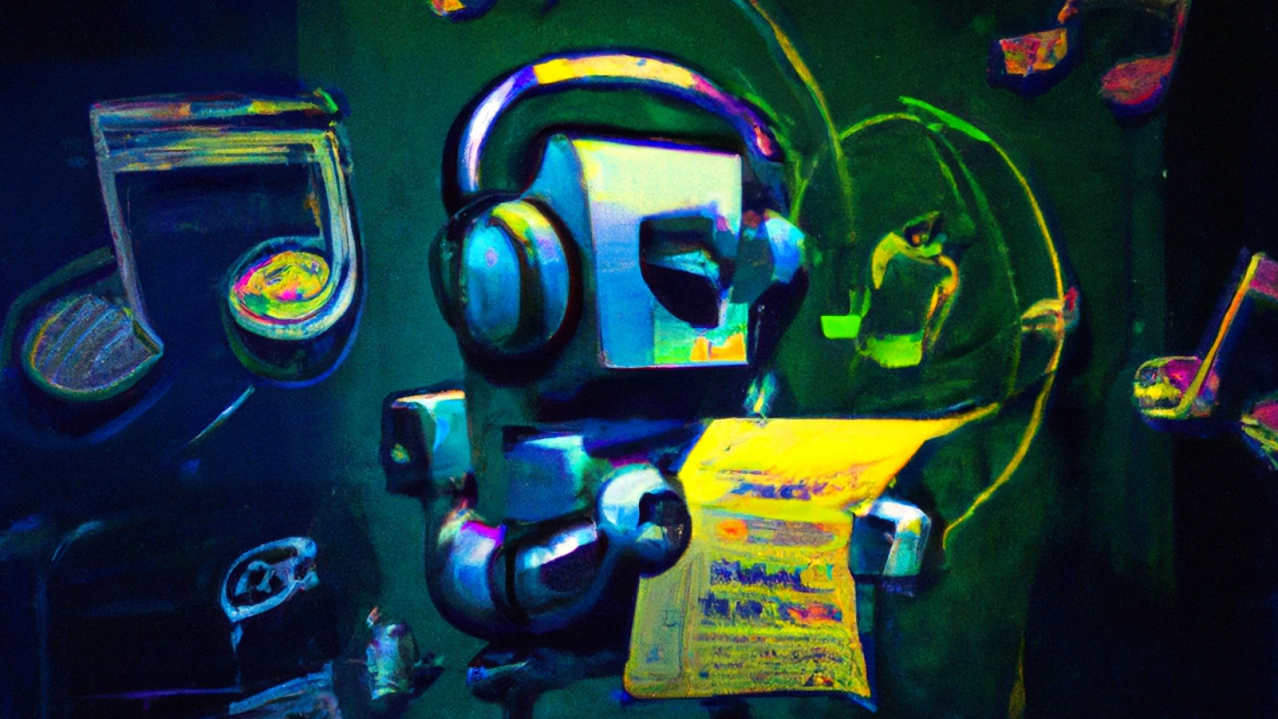In a world increasingly infused with artificial intelligence, the music landscape is undergoing an unparalleled transformation. AI music generators, like Harmonai’s Dance Diffusion, have the potential to change how we create and experience music. But while these advancements could spark a creative renaissance, they also raise serious questions about copyright, creativity, and the future roles of human artists. Let’s dive into how AI is reshaping the realm of music and the implications for artists everywhere.
The Emergence of AI in Music Creation
Five years back, electronic punk band YACHT embarked on a pioneering journey by creating an album entirely with the help of AI. Using 14 years of their music as training material, they birthed “Chain Tripping,” showcasing how technology can augment artistic expression. This experimentation led to significant discussion about the future of music composition and what it means to be an artist in the age of AI.
Fast forward to today, and AI music generation has come a long way. The introduction of Dance Diffusion, built upon the principles of diffusion models, represents a bold leap forward. By ingesting vast amounts of existing music, this model has the potential to create entirely new music compositionsalbeit short clips for now. But what does this mean for artists?
Understanding Dance Diffusion and Its Unique Features
- Diffusion Model Mechanism: Dance Diffusion functions by training on existing music data, learning to “destroy” and then “recover” these samples. It generates new audio outputs by mastering the intricacies of sound through a process akin to how DALL-E generates images.
- Current Limitations: As of now, Dance Diffusion can only craft snippets of music lasting a few seconds, raising questions about coherence and lyrical substance. For instance, while it can produce entries in the style of famous artists, the outputs may not fully resemble their original worksillustrating both the power and the glitches of this technology.
- Collaboration with Artists: Distinctively, Dance Diffusion is not merely an isolated tool; it’s a platform that encourages artist collaboration and consent in data sourcing, which may help alleviate some ethical concerns surrounding AI development in the music industry.
AI and Ethical Dilemmas
As AI music generators evolve, so do the ethical and legal consequences surrounding their use. While YACHT members Claire L. Evans and Jona Bechtolt express excitement about the creative possibilities, they also recognize the growing concern regarding the originality of AI-generated music. Infringement and copyright issues loom large, especially as companies like OpenAI have faced backlash over the use of artists data without permission.
Moreover, an academic paper highlights how AI tools may violate copyright laws, further complicating the scenarios under which AI-generated music can be used commercially. The tension lies in balancing innovation with respect for artists’ rights. Engagement in community-driven projects, like those initiated by Spawning AI, signifies a step towards fostering greater autonomy for artists amid AI’s rise.
Future Prospects for Creative Expression
The real question we face is not whether AI will replace human musicians, but how it will change the creative process. YACHTs perspective suggests that AI tools open avenues for expression. Rather than seeing these advancements as threats, they view them as opportunitiesdrawing parallels to the synthesis of genres that arose during the electronic music boom.
Jonathan Manns ambition to create a digital simulacrum of himself for continued music production captures this spirit. The notion of an always-evolving digital artist can be seen as both exhilarating and daunting. The boundaries of art, music, and identity are increasingly blurred as technology develops.
Conclusion: Navigating the New Musical Landscape
AI music generators like Dance Diffusion present a fascinating yet complicated frontier for the arts. As we navigate this digital landscape, its crucial that creators maintain agency over their work, prioritizing ethical considerations and collaboration in the evolving relationship between artists and AI. It is essential to foster an environment where AI serves as a tool to amplify human creativity rather than replace it.
As we look ahead, the potential is immenseultimately, the future of music may be a harmonious blend of human experience and AI innovation. For more insights, updates, or to collaborate on AI development projects, stay connected with fxis.ai.
At fxis.ai, we believe that such advancements are crucial for the future of AI, as they enable more comprehensive and effective solutions. Our team is continually exploring new methodologies to push the envelope in artificial intelligence, ensuring that our clients benefit from the latest technological innovations.

